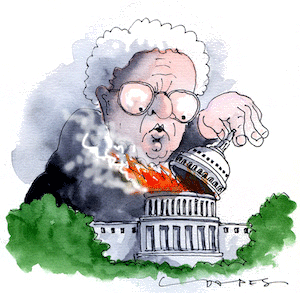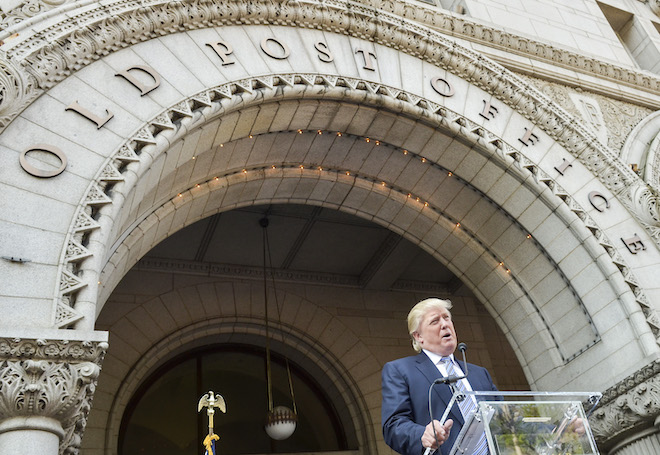Ominous agenda of SCOTUS' supermajority
Stonewalling the January 6 investigation ... Obstruction of justice is flavour of the season ... Midterm dangers ... Huge report on attempted subversion of the DoJ ... Supreme Court docket ... "State secrets" ... Legal theory in support of election heist ... From Washington Roger Fitch reports
"[T]he reprieve that we experienced when Trump did in fact leave office ... will be quite brief. By 2022, or 2024 at the latest, we will see that the American political system has been hopelessly corrupted, with Republicans having successfully ended any serious prospect of honest political competition ... it seems that we are merely waiting for the end ... We were never by any means a perfect constitutional democracy (having only had something roughly resembling widespread voting rights for about the last fifty-six years, among other obvious flaws) ..." - Neil Buchanan
 The rising tide of Republican lawlessness has become a Tsunami, and doomsday predictions of America's future are now common. F
The rising tide of Republican lawlessness has become a Tsunami, and doomsday predictions of America's future are now common. F
Briefly, Republicans seem prepared to destroy America in order to save it from Democrats.
One example: stonewalling house Republicans are resorting to extortion to prevent disclosure of their telephone records to the house committee investigating the January 6 Capitol invasion, while their former president, fresh from his campaign to steal the 2020 election, openly backs party candidates he believes will support his plans to steal the 2024 election.
The Republican caucus in the House of Representatives is bad enough already: two-thirds of members attempted to prevent the routine confirmation of the 2020 election results, and are resisting both house and senate investigations of some of the serial crimes and personal corruption of the last president.
One example: abuse of his government lease for Washington's Old Post Office, fitted-out as a luxury Trump hostelry.
According to documents released by the House Oversight Committee, the Trump International Hotel actually lost $70 million while its eponymous lessee was president: that's despite millions in foreign government backhanders disguised as bookings.
 Trump's loss leading hotel
Trump's loss leading hotel
The House Judiciary Committee is currently investigating the January 6 insurrection, including the former president's brazen plot to steal the election (more here), and has issued subpoenas for testimony by former Trump associates.
The litigation-entangled Trump responded by "ordering" former aides to flout their subpoenas, a textbook obstruction of justice; in any case, President Biden overruled Trumped-up claims of executive privilege.
Yet sadly, time is on Trump's side: Republicans, armed with fresh decennial gerrymanders and reliant on the gullibility of voters, will likely retake the house of reps next year and close down inquiries. What's really needed is a special prosecutor, as proposed in a 1987 Chapel Hill law review article by JR Biden Jr.
The many criminal investigations of Trump (including in Georgia) are another matter. Prosecutors retain a measure of independence, and there is hope that a successful prosecution of the former president for one or another of his many criminal defalcations and abuses of power will in future modestly deter the Republican Party.
Just Security argued for a Justice Department investigation of Trump's White House Chief of Staff Mark Meadows, as well as the president's DoJ mole Jeffrey Clark, now the subject of a DC Bar Association complaint.
Emptywheel's Marcy Wheeler speculated on how the Justice Department might bring charges against Donald Trump himself for his participation in January 6th.
Meanwhile, there's a 394-page interim Senate Judiciary Committee report on Trump's efforts to alter the election results through DoJ subversion. Lawfare comments.
≈ ≈ ≈
Blowback from the "war on terror" of the early 2000s still affects the supreme court docket: one of the first cases argued in the court's new October term was that of Abu Zubaydah, the long-suffering, much-abused Guantánamo internee.
Zubaydah's detention and mistreatment was one of the earliest emanations of that time when George Bush, aided and abetted by congress, effectively blew up the rule of law, and consequently, federal criminal (and sometimes civil) justice: not just through torture, but in the torture cover-up, repeatedly claiming, in shameless bad faith, the so-called state secrets privilege.
The Zubaydah case, now in the supreme court, directly confronts the question, how does the privilege apply when the "state secret" - the fact that Poland assisted CIA torture - is not a secret at all.
The Poles themselves have already acknowledged their participation and even paid damages to Zubaydah, in the European Court of Human Rights; however, they haven't gone so far as to give tours of the former US torture facilities, as the Taliban are doing in Afghanistan.
An amicus brief filed by the Bureau of Investigative Journalism demonstrates why the case does not in fact involve state secrets, more here, oral argument here.
Although the justices appeared unlikely to rule in Zubaydah's favour on the state secrets issue, they seemed genuinely astonished that the prisoner's habeas petition had not been acted upon since 2008.
The court will also hear another "state secrets" case this term, involving FBI surveillance.
Nine important cases are already on the supreme court's docket for the October term, including a case in which, surprisingly, public defenders joined the enemy gun camp in opposing New York's concealed-gun regulations.
Berkeley law dean Erwin Chemerinsky has a preview of the supreme court's term, and a new book warning of the right-wing court's ominous agenda; the Nation's Ely Mystal, a Harvard lawyer, also paints a bleak view of the likely regressive direction of the court's new conservative supermajority.
 Berkeley's Chemerinsky: court's ominous agenda
Berkeley's Chemerinsky: court's ominous agenda
In its recent recess orders overturning Biden administration executive orders, so at variance with the court's deferential treatment of Trump's orders, the majority seems to be siding with Republican party policy, issuing transparently partisan decisions; so far, the court has favoured Trump executive orders 28 times compared to zero for Biden. More here.
If these shadow docket decisions are any indication, Donald Trump's ideological judicial appointments portend a partisan court that will be anti-progressive, anti-regulatory and pro-corporate, a rubber stamp for Republican causes and initiatives that will last for years.
The court has also weaponised lower court orders of Trump-appointed judges, as in the case of states' meddling in immigration, here and here. The district court judges, both sitting in Texas, ruled in response to red border states who oppose the Biden administration's immigration policies, policies heretofore considered exclusively within the purview of the federal government.
This latest supreme court mischief has only increased calls for judicial reforms, including additional members for the court.
≈ ≈ ≈
 Eastman with troubled comrade Giuliani
Eastman with troubled comrade Giuliani
Lawyers may enjoy the improbable saga of the opportunistic hack John Eastman who, courtesy of Fox News, rose from legal obscurity to advance legal theories threatening the republic itself.
The New Republic reported on ex-law dean Eastman's seditious (though initially underreported) memos to Vice-President Pence. The Atlantic considered the overall scheme. More here.
Many lawyers have urged the California Bar Association to take disciplinary action against Eastman, something the bar failed to do with the notorious Berkeley law prof John Yoo.
At least Eastman's advice - unlike Yoo's public-service torture memos - wasn't cooked-up at taxpayer expense.
No comments:
Post a Comment